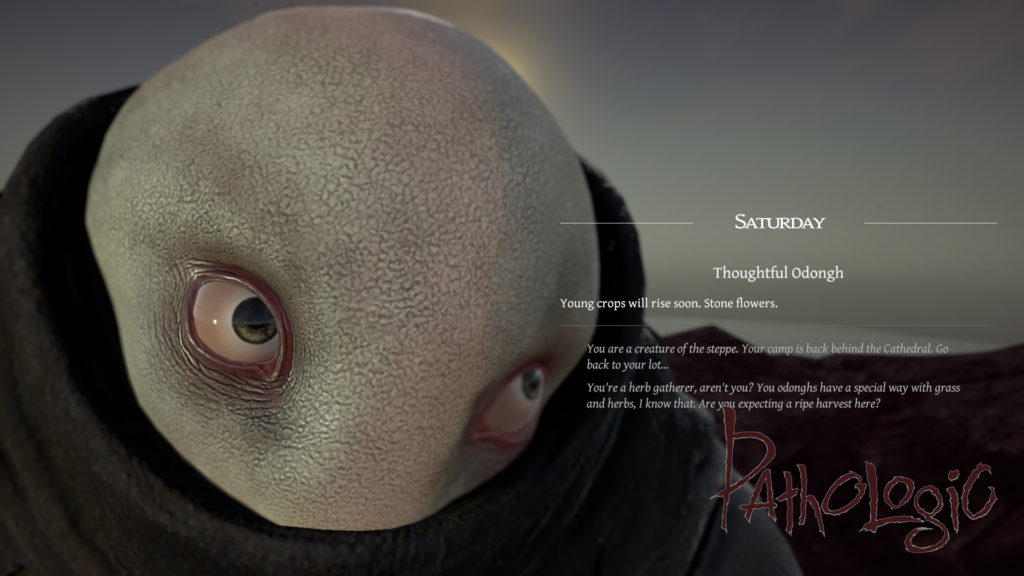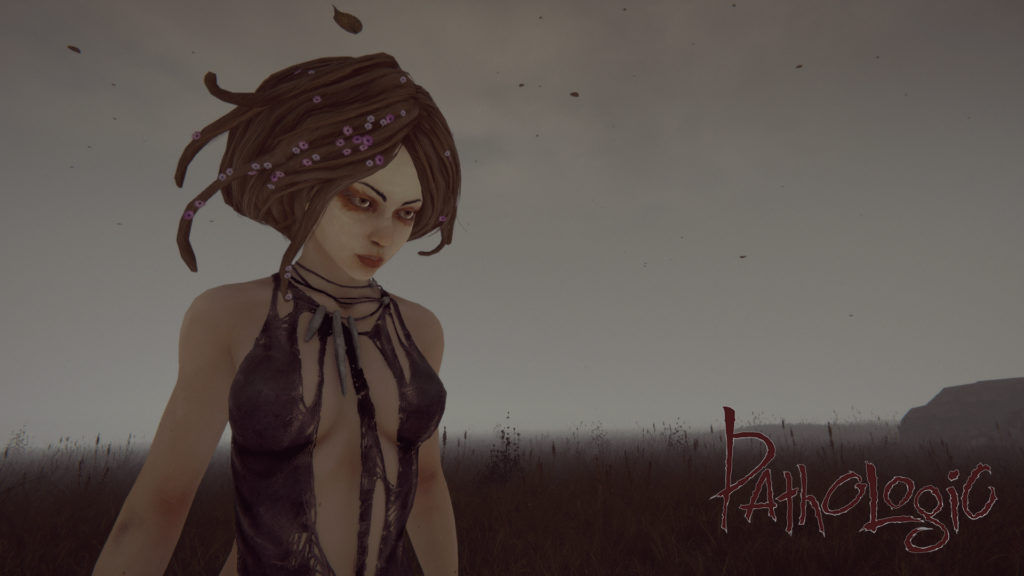A dead doll on a stage. The machinery of a diseased town. A bizarre and unnerving beaked silhouette that follows the hero.
What we’re describing isn’t Pathologic, but rather the imagery from an animated movie Pustota (Emptiness) made by Kol Belov in 2003 and based on a song of a band called Theodor Bastard. We first saw it when the original Pathologic was still a work in progress—and immediately felt certain kinship. “We were making the game in the comfort of knowing that next to us, other people were creating these wonderful, bizarre things,” says Nikolay Dybowski. “Depressing but magical things; creepy things that are somehow oddly reassuring!”
Over the years he returned to the animated short many times, drawing inspiration from it. However, at the time we never got past watching this one movie. Thankfully, when in 2016 an opportunity to team up with Theodor Bastard to make something together occurred to us, we were ready to jump at it.
“People Dancing in the Face of Death”
Theodor Bastard was founded in 1996 in St. Petersburg and has by now released more than a dozen albums. They play the most wondrous instruments, from ocarina, marimba, and udu to harp and didgeridoo; often sing in remarkably unconventional languages like Aztec or Old Norse. Their approach to music is that of conjurers. “Music is the true magic,” says Fedor Svoloch, the guitarist and leader of the band. “No magician can put his process into words.”
Which means that everyone has their own interpretation of what Theodor Bastard’s music is about. In one of his interviews, Fedor said, “We are simply people who acknowledge death—and dance in the face of it.” He also added that “death is always close by.”
These ideas ring true for Pathologic—a game about death following us from our very birth, about facing it, being tested by it and staying human through the whole ordeal. Perhaps the solution is indeed to dance?
To answer this question, we’re making Pathologic. And we believe that Theodor Bastard’s music and worldview offer valuable insight on the subject.
Collaboration
The idea of this collaboration was immediately accepted on both sides—it honestly felt like it was meant to be. Pathologic’s composer, Vassily Kashnikov, immediately set his mind on finding the right use for Theodor Bastard’s tracks; you will most likely hear them during the most poignant and climactic moments of the game, like in The Marble Nest. The rest of the score will be created by Vassily himself.
“Pathologic is more than a game, it’s a parallel universe,” says Fedor. “We appreciate this approach. Our works also include elements of imaginary worlds.”
To immerse themselves in the world of Pathologic completely, the band even postponed the album they were working on at the moment.
It was an important project that dealt with matters sensitive and dear to everyone included, demanding that hearts be poured into it. Yet the working process was established quickly. “Fedor would send a draft to me, and then we’d get in touch to discuss how else we could use the brand sound of the band for the game and even invent possible contexts for the tracks yet unwritten,” says Vassily. “One of the main conditions of this collaboration was preserving the distinctive style of the band, so we had to be very careful when setting creative goals to find the best use for Theodor Bastard’s music while preserving the game’s mood intact.”
“I was happy to see this collaboration happen,” he adds. “Happy that Pathologic became more rich and robust in terms of music. I think it will serve the game well. As for Theodor Bastard, I had no doubt we’d find a common tongue since day one.”
Now Theodor Bastard’s Pathologic score is already complete, to be released digitally and maybe even physically at a later point.
“I’m impressed with the results,” says Nikolay Dybowski. “Generally speaking, I trust Vassily to do the sound design. However, I already know that there is a certain dramatic point in the game that simply begs to be adorned with the beginning of Umbraya Erze…”
Bizarre and sublime instruments. The words of languages unspoken—either invented or novel to us. The vaguely shamanistic inflexions of the band’s singer Yana Veva.
Theodor Bastard seem to know what the inner side of the world looks like.
Theirs seems to be of the same color as the sky in Pathologic.
Meethos, IPL’s Art Director, was so impressed with the collaboration as to gather a team
to make a full-fledged Darkness music video



